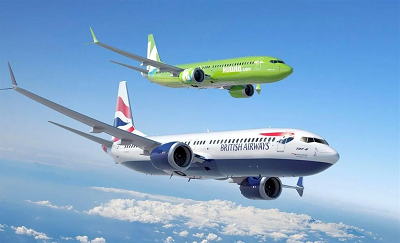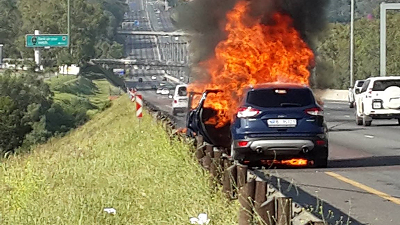

Founder: Turnaround Talk
One of the industries that was severely impacted by the lockdowns associated with the Covid-19 Pandemic was the airline industry. This was particularly bad in South Africa as the country faced wave after wave of inter provincial travel restrictions that coincided with fresh waves of the virus.
We have just begun to find our feet again and resume some level of normality with business trips, and travelling to conferences, starting to become common place again. The purpose of business rescue is to move a company beyond its financial distress towards a situation where it can implement a business turnaround plan that will allow the company to return to a profitable core. A significant part of this is building trust. This can take years to achieve and moments to destroy.
Given the issues that SAA faced – both with the company as a whole and its subsidiaries – trust in the aviation sector in South Africa is at an all-time low. Comair, a significant operator in the low-cost airline market in South Africa, was placed in business rescue in May 2020. They should have been positioning themselves to take over from SAA mistakes. However, the South African Civil Aviation Authority (SACAA) placed an indefinite ban on Kulula and British Airways (both operated by Comair) stating that safety concerns – owing to lack of maintenance – is a serious challenge for the airlines.
This is a serious setback for the Comair business rescue.

Photo By: News24
Issuing the ban
An article by the Daily Maverick pointed out that, in a statement, the SACAA said that the decision was reached “following an investigation into the recent spate of safety incidents at the Operator.”
“Just in the past month, Comair operations experienced occurrences ranging from engine failures, engine malfunction and landing gear malfunctions, among others,” they said.
In its statement, SACAA noted that the precautionary suspension would be for a period of 24 hours, “within which the Operator must demonstrate to the Regulator that the risk and safety management systems are effective in managing potential hazards.”
In response to the temporary suspension, Comair indicated its intention to resume operations by noon on Sunday.
Comair CEO Glenn Orsmond told the Daily Maverick, “we are doing everything possible to get the suspension lifted. We continue to engage constructively with the SACAA and are working hard to provide the SACAA with the additional information it requires.”
The Daily Maverick article pointed out that, in response to SACAA’s announcement on Sunday, Comair said that they are “unable to confirm when it will start flying again” and that the airline is continuing to engage the SACAA in a bid to get the suspension lifted but has been forced to cancel flights indefinitely.
Passengers stranded
While Kulula and British Airways are facing reputational damage, it is the public (more specifically passengers of these companies) that face the biggest impact. This was pointed out in a recent Times Live article.
The article points out that thousands of passengers were left stranded and irate after the aviation regulator issued a 24-hour precautionary suspension of Comair’s air operator certificate on Saturday morning. The move comes after a series of serious safety incidents at the operator.
The SACAA said the suspension would remain, pending the operator addressing issues it had flagged.
The article added that Comair said in a statement on Sunday it was unable to confirm when it would start flying again. “Our priority now is to assist passengers who have been stranded. We have chartered two aircraft to assist vulnerable passengers and those who most urgently need to travel,” said the operator.
Customers would be kept informed via SMS.
“This is a huge blow to our customers, employees and the flying public as it effectively takes 40% of the capacity out of the market. The implications for the aviation sector and the country are considerable,” said Glenn Orsmond, Comair CEO.
The SACAA has since lifted the ban. However, has significant damage been done to the brand? Will the public view Kulula and British Airways with the same level of trust?
Rebuilding the brand
This is a significant blow for Comair which is in the middle of a business rescue plan after being placed into voluntary business rescue in May 2020. The company should be focusing on rebuilding trust and relaunching the company having moved past any issues that it experienced in the past.
Ford faced similar issues in 2017 when its Ford Kuga models experienced mechanical issues that caused the vehicles to self-combust.
I recently read an article on iol.co.za which detailed how companies can go about rebuilding trust after a crisis.
The article points out that the first step for any organisation is to anticipate possible crises and create action plans. Every organisation should have a crisis plan and ensure that the bosses at mahogany row and employees know their parts. We know that once the crisis hits, the organisation or company’s leader must immediately step up and demonstrate strong leadership. Let us all agree that any company’s communicators are the antennae of its operation. That does not mean corporate communicators should be the only department doing that. It is sound business to build a culture that encourages the long view, where employees – in Ford’s case, the mechanics and engineers – are encouraged to anticipate issues and bring them to the fore.
The article adds that communicators concur that the big challenge in crisis and reputation and planning is sorting through all the information to end up with usable intelligence to prevent an escalating crises because, indeed, proactive crisis management and mitigation includes a more deliberate process of identifying risks and issues early and managing them before they escalate to crisis levels.

Photo By: Facebook
To rebuild the trust and maintain a sustainable future after a crisis or disaster, companies and organisations must recognise more and more that crisis management must be an institutionalised culture.
The article points out that best practice shows that integrating issues and risk management with crisis management enhances organisational resilience and vigilance. However, it’s a pity that risk management, crisis management and business continuity are often managed independently by different functions. This lack of co-ordination often generates gaps and or overlaps in processes, which reduce overall effectiveness. Who knows this is what happened at Ford?
To provide an integrated approach to crisis anticipation, prevention, mitigation and recovery, it is essential to assign ownership of the communication to a departmental custodian and embed it into corporate management planning and culture.
So where does this leave Comair?
Comair’s initial response to this crisis will set the tone regarding how long the company takes to recover the reputational damage it has suffered as a result of this issue.
Writing the article in 2017, the author of the IOL article made some important points regarding Fords recovery from the Kuga crisis:
- It is critical that Ford delivers on its promises, whatever they are. The company must step forward to offer customers something substantial that demonstrates regret and desire to win back their loyalty. Give them something they don’t expect and do it as soon as possible;
- The quickest way to erode trust is to say things and then not follow through with your actions. It’s better to under-promise and over-deliver than vice-versa;
- If you are unable to keep your promise – for whatever reason – then being upfront and transparent about this can still be a trustworthy act; and
- Also, trying to pass the buck and avoid responsibility rarely wins any business or company any points. A brand is a promise, and reputation is all about keeping that promise. This is what customers expect.
How can Comair take these points and apply them to its own recovery efforts?




